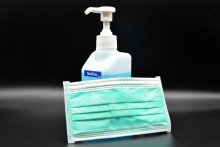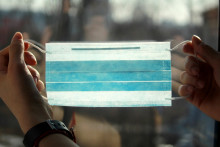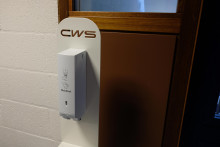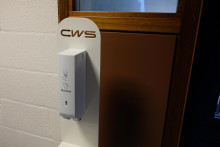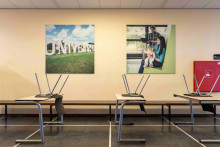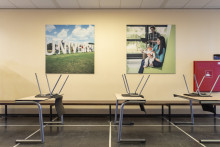The research is a collaboration between the UT, Erasmus University and the Public Procurement Research Centre (PPRC). In the first phase, researchers from PPRC and UT focus on procurement and delivery at the national level, including the Dutch National Consortium for Medical Aids, which was founded at the end of March. The Erasmus team looks at the individual hospitals and healthcare institutions.
The procurement of so-called 'critical materials' is central to the study. This includes personal protective equipment, such as face masks and gloves, as well as ventilators and test materials. ‘The question is what lessons we can learn from the procurement and supply policy during the corona crisis,' says researcher Niels Uenk of PPRC. ‘Was there, for example, cooperation or did competition arise within the Netherlands for protective materials?’
Comparative study
In addition to the analysis of the procurement and supply of materials in the Netherlands, the research also investigates procurement in 23 other countries, says UT professor Louise Knight. ‘We look at how these countries responded to the pandemic on a national level. We are able to do this analysis thanks to our broad network within the International Research Study of Public Procurement (IRSPP). This includes both developing and developed countries from all over the world.’
It is not the intention to create a top-23 league table, Knight emphasizes. ‘The word ranking is not very suitable in this context, I would say. We want to compare the strategies of the different countries, to understand what strategies are effective in which contexts. Among other things, we want to retrieve this information through interviews with procurement people, usually those responsible for public procurement, in the 23 countries. This will lead to lessons for the future, so that we will be better prepared for pandemics in the future.’
Stockpile
The Netherlands now has 700 million surgical masks and 289 million gloves in stock. Quite a difference with the situation at the beginning of the pandemic. Nevertheless, the Netherlands is still facing a serious problem at the moment: a shortage of testing capacity. How the Netherlands differs compared to other countries cannot yet be said, according to the UT researchers. If only because the research will not be published until the end of 2021.
However, the establishment of the Dutch National Consortium for Medical Aids within a few weeks in March is an impressive achievement, says Knight. ‘That would normally involve a long process with extended negotiations between the stakeholders. At the same time, there is a risk that the National Consortium will take over all supply lines, which could disrupt the supply of local health care providers. These are the sorts of issues we will examine.’
Insights
The research will include a reconstruction of what happened from week to week, maybe even from day to day if this is relevant, during the corona crisis, Uenk says. ‘At the end of December and the beginning of January face masks were still being shipped from the Netherlands to China, for example. It was only in February that the seriousness of the situation began to be apparent. In this phase, the tactic was to gather as much personal protective equipment as possible. Then, of course, price and quality issues arose. The regular cycle of procurement and supply broke down during the corona crisis. There are stories of procurement staff at care institutions who were exempted from all other work and had to make at least two hundred phone calls a day to get enough face masks.’
Now that the Netherlands is struggling with the first symptoms of a second wave, knowledge about the procurement of critical materials seems more relevant than ever. Shouldn't the results of the research be made available immediately? There will be several intermediate sessions with stakeholders, Uenk responds. ‘Of course we want to share our insights as soon as possible, even before they appear in a scientific publication. We do this by means of webinars, for example – and by presenting research at international conferences. But I expect the first meetings at the end of November at the earliest.’


